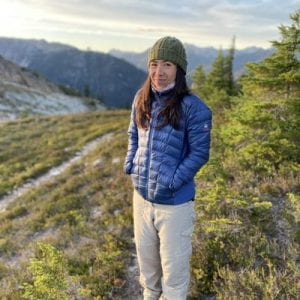“Memories of Earth’s past biospheres via microbial genomics“
Speaker: Prof. Rika Anderson (Virtual), Carleton College, Northfield, MN
Date: Friday, June 9, 2023
Time: 3:00 – 4:00pm
Location: ISB 221 (In-person)
In the past decade, the search for life beyond Earth has been revolutionized by the discovery of thousands of candidate exoplanets. As a result, astrobiologists have increasingly focused on identifying candidate biosignatures that might be detectable in exoplanet atmospheres. Identification of potential biosignatures requires interdisciplinary collaboration in order to better understand which gases are released by (mostly microbial) life on our own planet, both now and in the deep past. In order to trace the evolution of biosignature-producing microbial metabolisms over time on the early Earth, we use phylogenetics methods to identify when specific microbial genes arose and then spread across the tree of life in Earth’s past. In collaboration with geochemists and astronomers, we work to understand our results in their geochemical context, compare them with the rock record, and interpret our results in light of when specific biosignatures would have emerged at different points in planetary history. We have used these methods to assess the biological nitrogen and sulfur cycles. Our next steps will be to constrain the flux of biosignatures at different points in Earth history to better constrain the production and detectability of candidate biosignatures in their biogeochemical context.
About the speaker:

Rika Anderson is an associate professor at Carleton College in the Biology department. The overarching goal of her research is to understand how life co-evolves with its environment over time. Her group uses next-generation sequencing tools to better understand the processes that drive microbial and viral evolution over time. They collaborate with astronomers, geologists, chemists, and atmospheric scientists to ask big-picture questions in astrobiology and oceanography.
